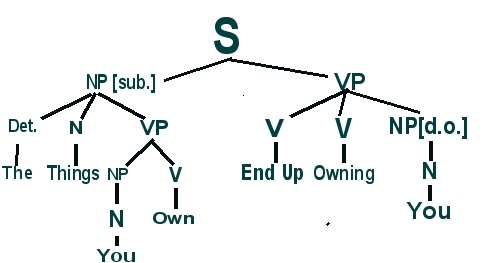I'm trying to decode what word-type each word is in the following sentence, please correct me if I'm wrong.
The things you own end up owning you.
I have it decoded as follows:
The (det) things (noun) you (prep) own (verb) end (noun) up (adverb) owning (verb) you (prep).

